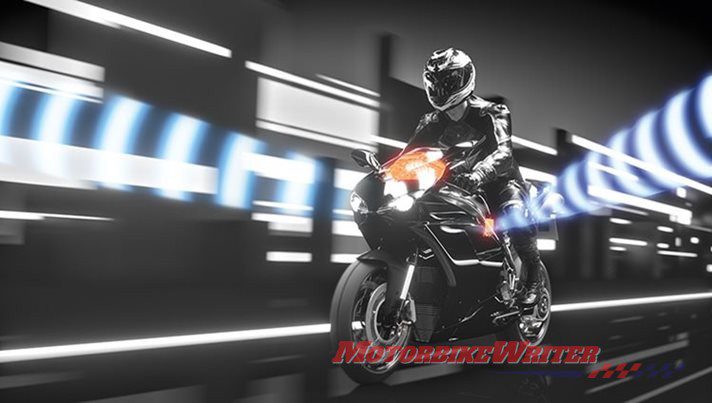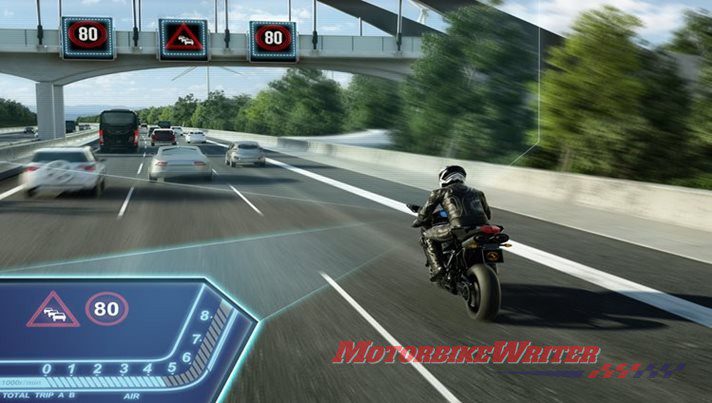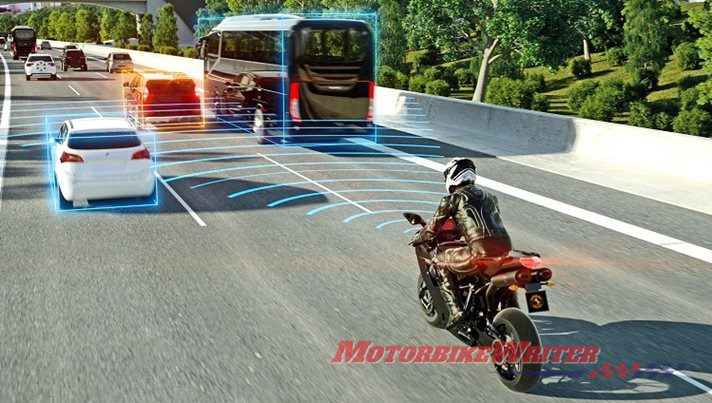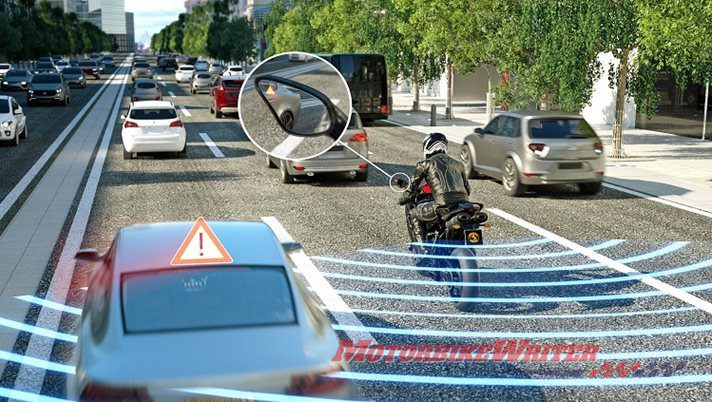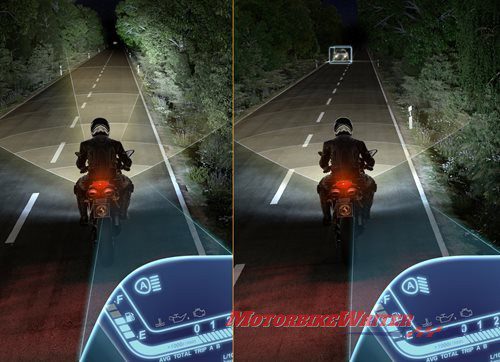German automotive technology company Continental AG plans to be the first with a motorcycle emergency brake-assist system that applies extra brake pressure when it senses a crash.
Their system would not be automatic like in some cars that take over braking duties from the driver.
Continental recognises that motorcycles are different to cars and say their system would only assist the rider.
It works by using accurate fifth-generation radar sensors to detect imminent crash dangers.
However, the system would have to be different to cars as motorcycles lane filter close to vehicles which could easily activate emergency braking systems and send riders tumbling into traffic.
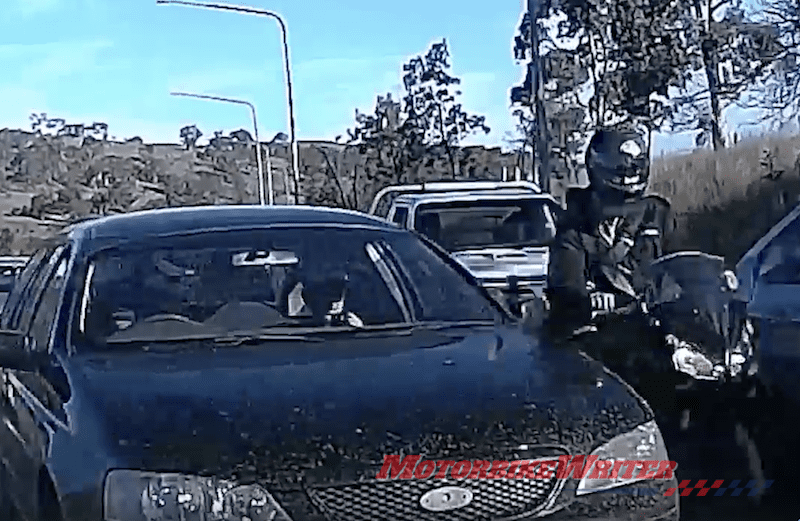
Continental motorcycle spokesman Christian Pfeiffer says their system would first alert the rider via “haptic” vibrations in the handlebars.
“Low initial braking pressure then helps the rider with the active braking operation,” he says.
“If the rider does not react to the warning, emergency brake assist automatically builds up braking force if the rider has both hands on the handlebars. The deceleration is much less pronounced than in a passenger car emergency braking system.”
However, Continental may be beaten to the punch by Honda which has filed patents for an emergency braking that automatically stops a motorcycle if it detects an imminent crash.
Mandatory emergency brake assist?
A few years ago ABS was an optional safety system for those who wanted it. From the end of next year it will be mandatory in Australia. (See details at the end of this article)
How long before emergency brake assist also becomes mandatory on motorcycles?
The United Nations #STOPTHECRASH campaign has called for mandatory autonomous emergency braking that activates at slow speeds if an obstacle is sensed in front of the bike.
Of course, the makers of many of these electronic safety devices, Continental, Bosch and Denso, are supporters of the UN program.
Continental safety
Emergency brake assist is not the only electronic safety technology Continental is developing.
They are also working on sensors that detect roadside speed signs and display them to the rider, adaptive cruise control, blind spot detection and automatic switching to high beam.
All these systems are based on Continental’s fifth-generation radar that go into production in 2019.
They use improved object detection algorithms that detect even smaller objects such as an exhaust that has fallen off a car.
The heights of objects can also be calculated by an elevation measurement device that detects the tail of a traffic jam under a bridge or road boundaries such as kerbs.
Continental claims their tech is now smaller and lighter.
It consists of a sensor cluster that measures acceleration and yaw rate, a radar system that analyses this data, plus brake and engine control units that activate on demand.
Continental say these can be fitted to motorcycles of all sizes from a single source, including the instrument cluster, that warns the rider of an imminent collision.
Mandatory ABS
From November 2019, all new motorcycle models sold in Australia will either have anti-lock braking systems (ABS) or combined braking systems (CBS).
ABS will be mandatory on motorcycles, trikes and scooters over 125cc, while either ABS or CBS will be mandatory on those under 125cc. Trail bikes under 250cc and all enduro and trials bikes are exempt.
If the bike has switchable ABS, the default setting when the bike is turned off and turned back on again will be for ABS to be active.
Countries with mandatory ABS on designated motorcycles in all European nations, Japan, India, Brazil and Taiwan.
Even the USA – the land of freedom of choice – is now considering making ABS mandatory.


